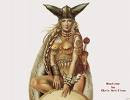The Creative Balance
Everyone of us has carefully constructed patterns and cycles to use in the vast human behaviour that we call our lives.
One cycle that we each play with is the Create and Destroy cycle – in essence a cause and effect pattern – perfectly balanced and a real pain in the butt at face value.This is the “I really want to do this but I don’t want to fail” cycle. “I’ll give it a go but if it doesn’t work, I will beat myself or anyone else up.” This leads to the “Something is wrong with me, I can’t make it work I'm so uninspired about this now”. Phase. This loops to the “I’ll give it another go but don’t want anyone to know about my failure. I’m not good enough. I need help. I have to change.” Sound familiar?
I work in two industries – music and business training and had considered these industries to be worlds apart, however, in recent months, I have gleaned a greater appreciation of how life as a musician really provides a beautiful template for education in the art and business of life. There are times on stage when you make a huge mistake while playing your instrument and usually no one notices, if they do, you can call it jazz and laugh about it or this mistake can take you to a whole other musical realm where you get to build on the mistake to bring yourself back to the original key after having fun going off on a musical tangent.
As a certified teacher of The Demartini Method, I hear the words love and inspiration consistently. Now I’m not diminishing their value or importance at all. However just recanting the standard phrases and using the “right” language (throwing in a universal law or creator force or higher self sprinkled through your conversation) simply doesn’t cut it without appreciating yourself for who you are exactly as you are right now. Nor does it eliminate the system and structure of practice and pattern of behavior that sits behind inspiration.
Everyone around you, in business or life, can feel your congruency regardless of your language or actions. So before you begin any sort of creative project – whether it’s a new business enterprise, choosing a relationship, upgrading your health and fitness, increasing wealth, building networks or expanding your education, do an inventory of YOU in your current form and value it. This establishes your foundation of creation.
Twyla Tharp said, "Creativity is a habit, and the best creativity is a result of good work habits.
That's it in a nutshell."
When I was studying piano, I would practice for two hours before going to school and then two hours when I got home. At the conservatorium, the rehearsal rooms were the biggest ticket item in town as all the students simply practiced every hour that they could possibly squeeze in. Practice makes perfect when you are a performer. Repetitive work habits and daily exercise routines become rituals – they become automatic – you habitualise certain patterns and simply repeat until you can sing that high F sharp in the Mozart opera or you can perfect that jazz lick or master that Bach Fugue on the piano. Music is the ultimate decisive pattern and when you apply strict practice habits at the beginning of the creative process to minimise the chance of turning back or giving up. This is about making a commitment motivated by you desire to achieve.
This principle is well known for performers and artists. The creative process is not a product of inspiration; rather it is a product of what we might call a creative state of being. Inspiration usually occurs in two ways. BEFORE a project – creating the seed for the idea and for many performers AFTER the habits have been established and the steps or notes have been mastered so that an almost automatic performance can further inspire the soul to take flight without attachment to the process. (Like the mistake I mentioned earlier!) So many times I’ve woken up in the middle of singing a song and not known what I am singing. It’s only then that I forget the words. If I don’t question it, I can simply open my mouth and become part of the music.
To truly create, you really need to establish the habit of creating on days you don't feel like it, creating when the circumstances are not quite right, creating no matter what else is going on in your life. A true artist, author, musician or performer will therefore be able to rehearse, write, paint or photograph regardless of whether the air conditioning breaks down or your partner is upsetting you or the pipes burst or your day job is boring or an election is looming or your bank balance is low or your child is ill or your parent has died. In fact, let’s extend this to every human being in every circumstance. There will always be a problem to solve however this really is YOUR choice to either solve it (delete it) or to create. This becomes a way of life. Creation leads to more creation.
There is the story of Robert DeNiro giving advice to a wannabe young actor. DeNiro said, "You’ve got to practice. When I play the part of, say, a cop, I practice being that cop from the time I get up in the morning to when I go to bed at night." I think this is the same for anything that you choose to create. Simply live it. Perhaps this is where that saying “Fake it until you make it” comes from. Just do it until it becomes second nature so that when things DO f**k up, you can more easily wing it and have fun while enjoying the creative process.
When I recruit people to work in my business, I usually like to start them in accounts data entry. This role is rather basic; you follow the system, fill in the dots and work to a process. We have a three-month trial agreement and it usually takes about two months before this person starts getting it – either complaining about the job OR becoming innovative to make it more interesting. This is where I make my decision about retaining them for a full time position or letting them go. The thing I love about this position is that it provides the perfect filter to identify a fresh mind that is open to new ideas without attachment to fixed beliefs, dogma and thinking that there is a "right way to be". These concepts limit creativity and challenge a healthy development of a creative habit. It is the difference between being a victim and having a boss to blame for a crappy job or being an innovator who is willing to turn the job into any possibility. This is the difference between a reactive and a creative orientation.
As an employer, I’m interested in employees who get excited about trying new things, failing, using this as feedback and trying again while enjoying being creative and finding the fun in their job. This is exactly the process that a musician and performer will use – develop ideas, make a wrong move, f**k up, back track and learn from it, try another angle and keep going. This process develops the skills to close the gap between what you see in your head and what you get on stage, put on the canvas, see in the lens, record in the studio or manifest in the office.
The most powerful and successful process for accomplishment in history, would without a doubt be this creative process. Paradoxically this process would also be the most misunderstood. How many parents agonize over their children’s career choices and harass them to get a “real job”? To create art in life, we must live and think in the creative process. You can revolve your life around problems or you can revolve your life around outcomes. You can allow circumstances to drive your decisions and actions, or you can appreciate the circumstances and use them to propel you towards your creations. Robert Fritz would say that being creative is being in a state of structural tension, focused on a vision of the outcome you are creating, while truthfully observing the current situations you face. This is in effect a learning mode, where you are ready to take failure and success as experiments to use as the foundation for future creating.
Ok that sounds nice but how can you actually DO this? Submerge yourself in all details of the work. Pledge yourself to mastering every aspect. Then balance this with a detachment to the work. Give yourself time and space to step back and critically assess from a new audience perspective. The creative process requires both sides – Involvement and Detachment. Focus on the creation itself – focus on the outcome. Detach yourself from the creator – this is not about you – this is about the creation.
So balance everything you do - create and destroy - involve and detach - feel inspired and habitualise the process. And most importantly have fun!

